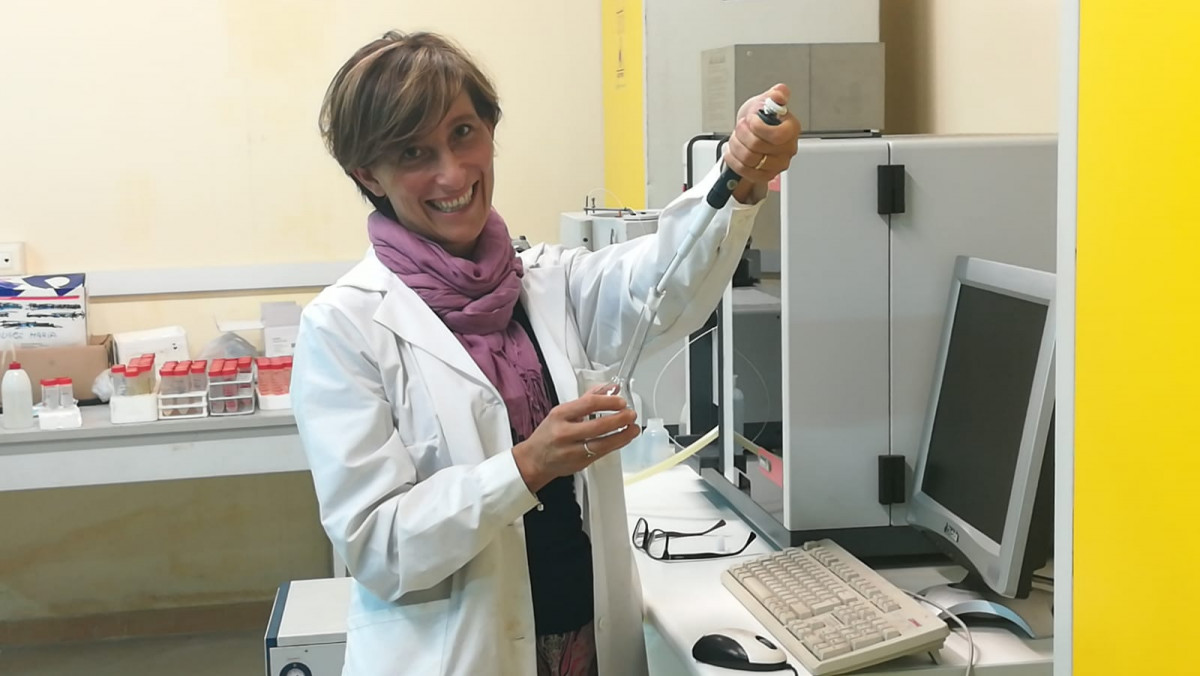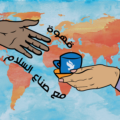
Workshop
“I produced weapons, today I build peace”
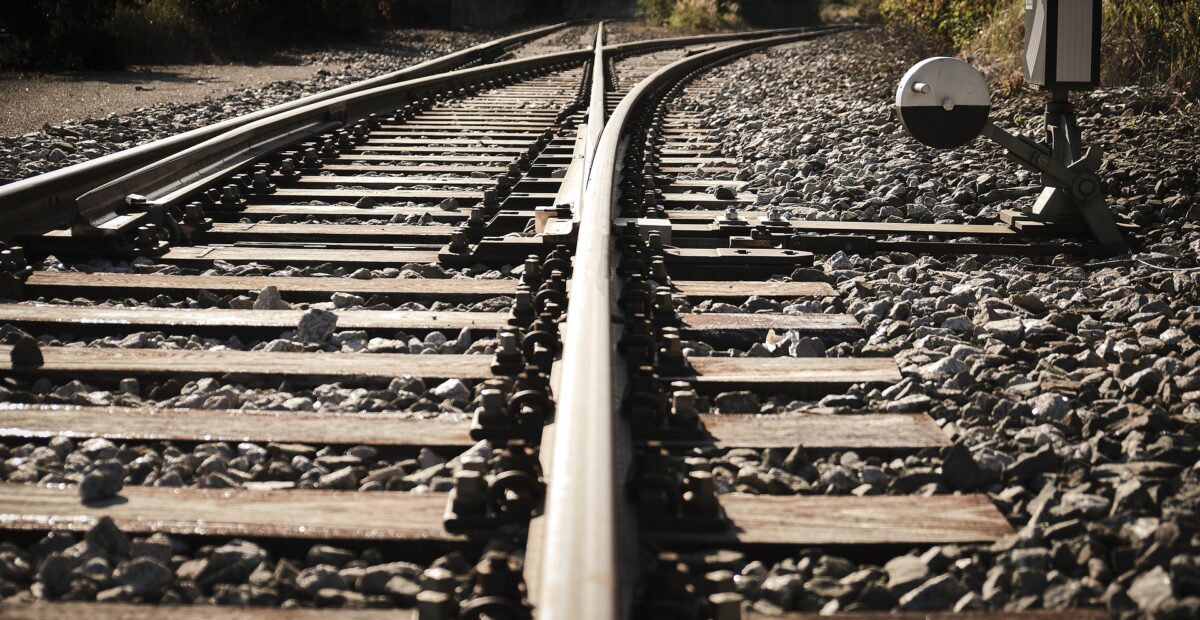
The story of Vito Alfieri Fontana: from landmines to commitment to fraternity.
“I know for sure that peace is necessary because I have seen what a war is. I have experienced that empathy is sometimes not enough, it is necessary to get involved, to risk oneself for peace”.
Vito Alfieri Fontana is like a raging river. I spoke to him by phone in his home in Bari, Italy, to better understand how talking about fraternity can still be of value in these times.
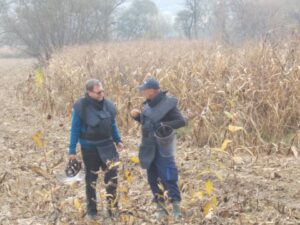
I am talking to him about this because he has a story to tell. Today, he is a loving father and husband, a retired man, although he never stops travelling around Italy talking to young people, in schools and associations, to make them aware of peace matters. He was an entrepreneur in the arms industry for many years.
Recently, a new report by the European Network Against Arms Trade (ENAAT) and the Transnational Institute has been published, describing what it calls the ‘third arms race’, to which the European Union is allegedly contributing with a budget that has increased 13 times over the previous one in the new 2021-2027 budget.
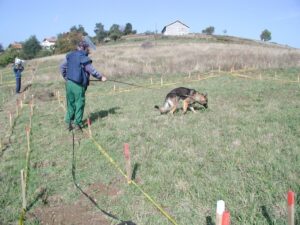
“A choice that unfortunately suggests that the more weapons there are around, the greater the likelihood of conflict”, says Fontana, who for many years owned a large family business, Tecnovar, which produced military components and finished products: anti-personnel mines, anti-tank mines, hand grenades, helicopter equipment. In total, it has produced around 4 million mines, 1.5 million of which are anti-personnel mines, sold not only to the Italian army, but also to countries such as Egypt, all of which have been authorised by NATO and the Italian government.
“Mines are among the most cowardly weapons, they don’t decide who to hit, a simple press of the foot is enough to blow you up. They are real instruments of terror that offend an entire territory”. Fontana produced them, trying to insinuate himself into world crisis situations, without making too many qualms because this was simply his job.
“Every now and then boxes with only one shoe would arrive on my desk, to indicate that the other one had blown up, a way of making me realise the evil I was committing, but after the first few times everything became normal, like the postcards of gratuitous insults against me”.
Then a child’s innocence triggered the change: one day his son found brochures about the company in the back seat of the car: “Daddy, do you do these things? Then you are a murderer! – The little boy, only seven years old, but with very clear ideas, says to him.
“It was a very big blow, I don’t know what happened, but when I was told by a son that I was a murderer, a restlessness began to creep up on me that over time I discovered as an opportunity, because it gave me an awareness of my responsibilities”.
This was the beginning of a journey for Fontana, encouraged by the campaign to ban anti-personnel mines, which took shape precisely at that time, at the beginning of the 1990s, together with the meeting with Pax Christi, and the experience of the then Bishop of Molfetta Monsignor Tonino Bello, whom Fontana never met directly, but whose charisma played a particular role in his human and spiritual conversion. “I realised little by little how thin the line between producer and arms dealer was, I found people who extended their hand to me to change their lives, and I decided to grab this hand”.
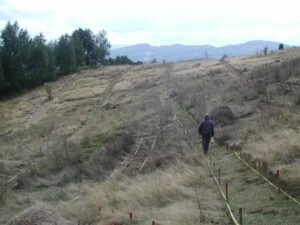
The awareness of knowing what was going on and of having done nothing up to that point to prevent the evil, led Fontana to close the company within a few years, with a clear change also in the economic tenor of his family, while worrying that the 90 or so remaining employees would be able to take advantage of the social safety net provided for by law. But it is not enough for him to stop producing evil. He wants to do more, he wants to give a visible sign of his commitment to peace, and for the next 17 years, on behalf of Intersos and the United Nations, he became one of the most experienced deminers in the Balkans. It is he who, together with others in Bosnia and risking his own life, coordinates the operations to remove the mines, reclaim the land, and give a previously unusable piece of land back to a people so that they can rebuild their lives and their history.
“It was an experience that left a deep mark on me and made me understand a lot of things: the war lasted three years, it took another twenty to clean everything up, and the consequences of the war on the people of the Balkans are still being felt today. The time it takes to destroy is nothing, but to build is immense, and what I see in these days makes me feel terrible, because I know what it means for the Ukrainian population, and it makes me shout how much we need peace”.
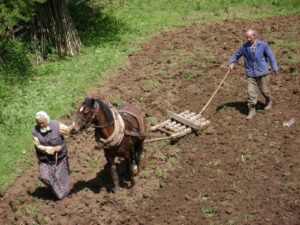
Fontana was also a colleague of a man who lost his leg when he jumped on a mine. It was an experience that made him realise even more how much working together teaches everyone that it is useless to cry over spilt milk, history has gone a certain way, but we must find ways to move forward, to find a little light in the midst of so much darkness. “My story is this, I can’t pretend it’s another one, I’ve suffered, and I suffer for what I’ve done, but the challenge has been to find a way to make sense of my experience, learning to bond with the other, even though I’ve probably done incredible harm to this other. From there a new good can be born, which, in my case, has become the good of an entire people with whom a certain fraternity has been established, and this makes me still believe in a possibility for the human race”.
When I ask him how he feels when he watches the news today, he replies by talking about the glass in the houses: an explosion destroys what is in the immediate vicinity, but it also destroys the glass in those houses that do not collapse. “I’m thinking not only of the dead and the displaced, with the tragedies and cruelty that are linked to these stories, but also of those people forced to remain in their semi-destroyed homes, perhaps in the cold and frost of this period in Ukraine, gnashing their teeth because they can’t get warm, and I’m thinking of how much glass it would be nice to bring back to put back the houses, to offer warmth”.
Does fraternity also pass through broken glass? – I ask him in conclusion – “Yes, if there is the courage to look each other in the eye: that is what the enemies will have to learn to do once this tremendous conflict is over. And they will be able to do so not only if there are opportunities for work, for reconstruction, but also if there is the courage of all of us to get our hands dirty and give up something of ourselves to meet the needs of others. I did just that, closing the company and starting to work for peace, but it is an experience we can all have because every day we all have to choose between good and evil”.

